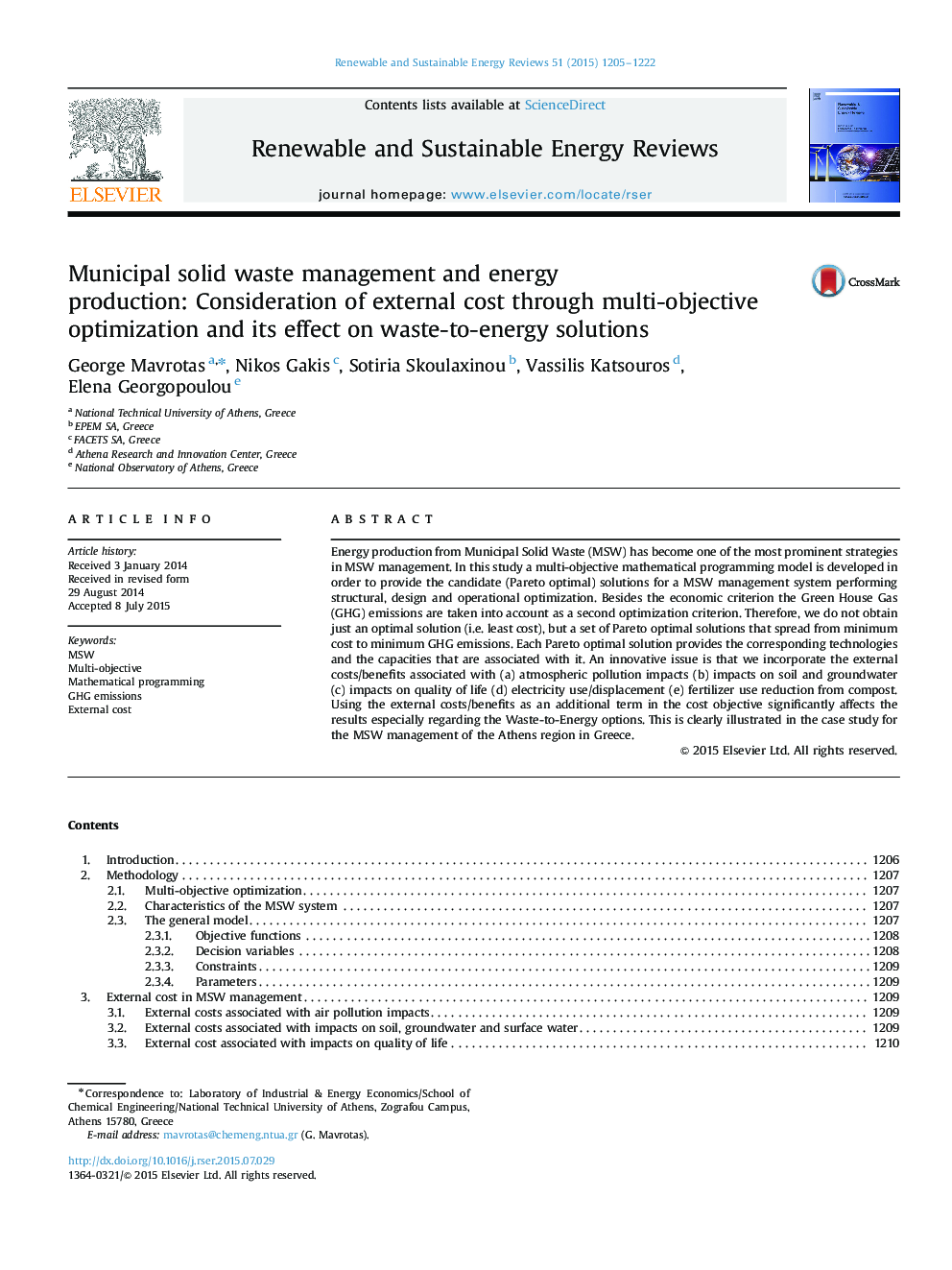| Article ID | Journal | Published Year | Pages | File Type |
|---|---|---|---|---|
| 8115954 | Renewable and Sustainable Energy Reviews | 2015 | 18 Pages |
Abstract
Energy production from Municipal Solid Waste (MSW) has become one of the most prominent strategies in MSW management. In this study a multi-objective mathematical programming model is developed in order to provide the candidate (Pareto optimal) solutions for a MSW management system performing structural, design and operational optimization. Besides the economic criterion the Green House Gas (GHG) emissions are taken into account as a second optimization criterion. Therefore, we do not obtain just an optimal solution (i.e. least cost), but a set of Pareto optimal solutions that spread from minimum cost to minimum GHG emissions. Each Pareto optimal solution provides the corresponding technologies and the capacities that are associated with it. An innovative issue is that we incorporate the external costs/benefits associated with (a) atmospheric pollution impacts (b) impacts on soil and groundwater (c) impacts on quality of life (d) electricity use/displacement (e) fertilizer use reduction from compost. Using the external costs/benefits as an additional term in the cost objective significantly affects the results especially regarding the Waste-to-Energy options. This is clearly illustrated in the case study for the MSW management of the Athens region in Greece.
Related Topics
Physical Sciences and Engineering
Energy
Renewable Energy, Sustainability and the Environment
Authors
George Mavrotas, Nikos Gakis, Sotiria Skoulaxinou, Vassilis Katsouros, Elena Georgopoulou,
